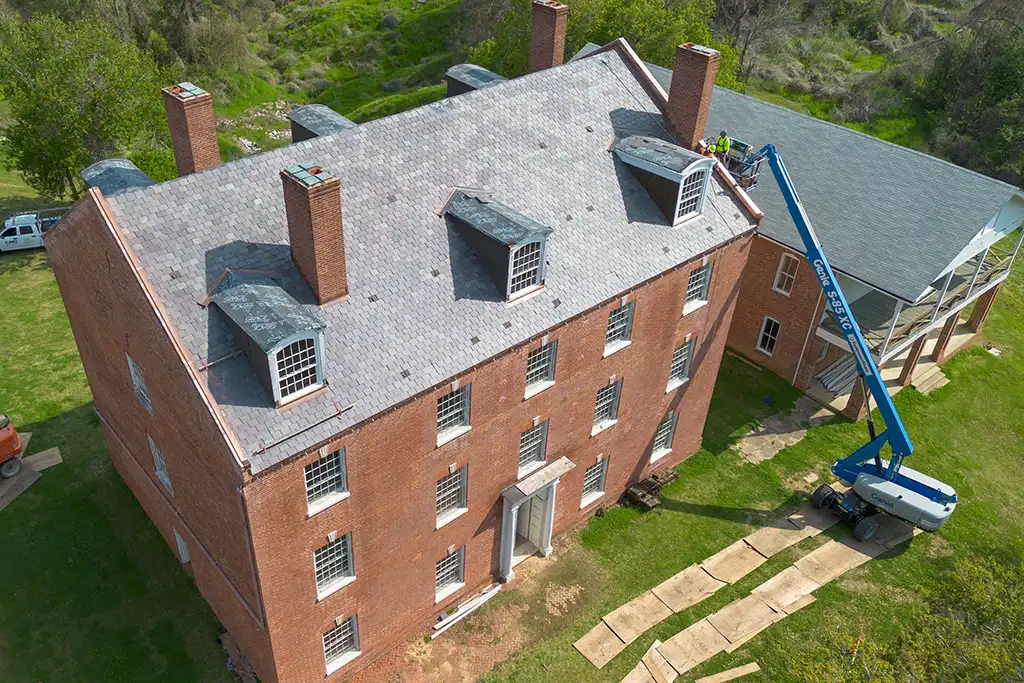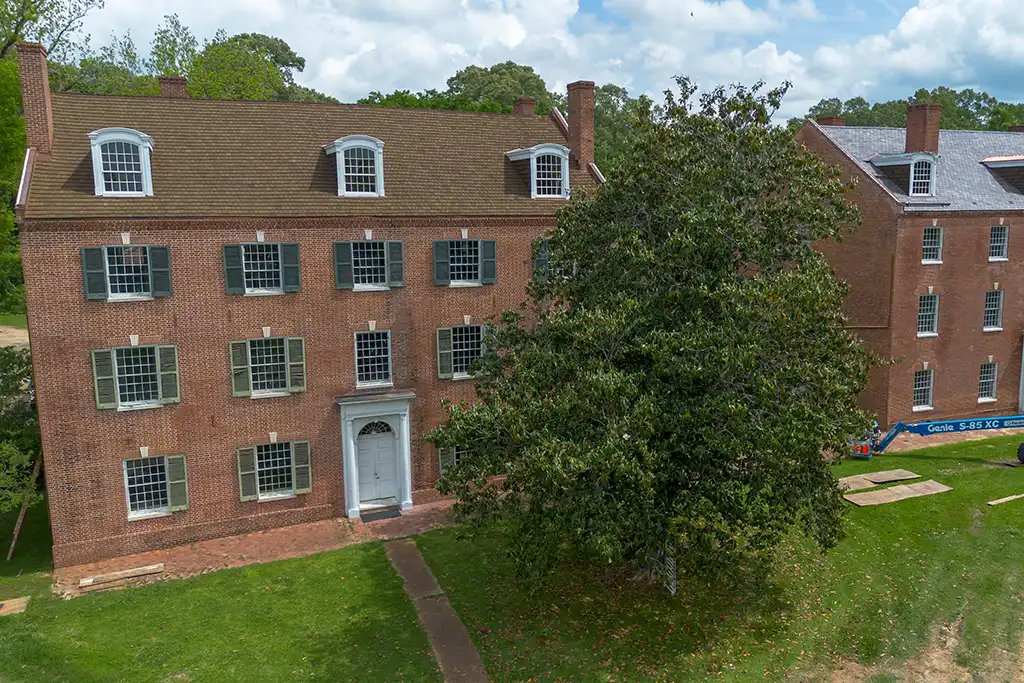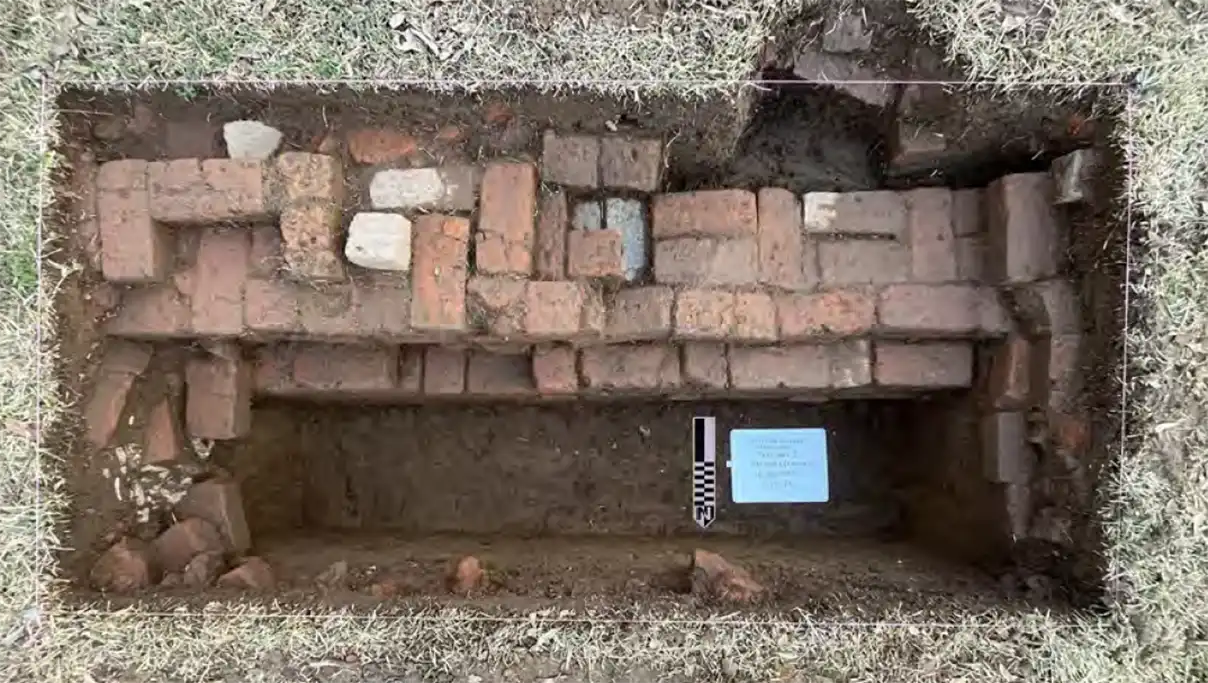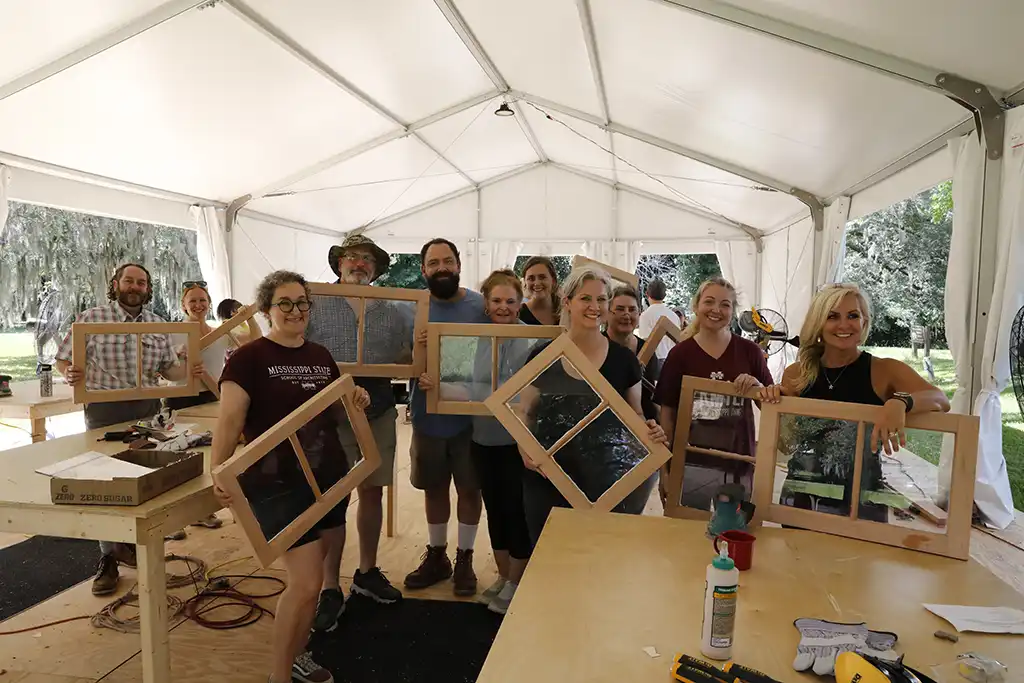Rehabilitation of Historic Jefferson College into MDAH Interpretive Center and Field School
Historic Jefferson College is the birthplace of Mississippi’s statehood in 1817. Established in 1802, the school was the first institution of higher learning chartered in the Mississippi Territory. It is currently closed to visitors during MDAH’s rehabilitation of the eight buildings on campus for use as an interpretive center and preservation field school. The center will share pivotal stories in American history with a focus on cotton, slavery, the Civil War, and Reconstruction. The campus will also serve as a historic preservation field school, where students from across the country can gain hands-on experience in preservation trades.


Historic Structure Rehabilitation Project
An initial phase of work began in 2023 to address priority repair needs and stabilize the historic structures, while planning for future improvements continued. Roof and envelope repairs are underway on six buildings across the Historic Jefferson College campus, with completion expected in summer 2025. This initial project involves the West Wing, East Wing, Steward’s Quarters and East Kitchen, Prospere Hall, and Carpenter Hall.
A second phase of work beginning in 2025 will further rehabilitate two buildings—Raymond Hall and Carpenter Hall—while also adding a new workshop and improvements to site access in support of the preservation field school.
Planning and repair work is also underway on the President’s House. A recent structural assessment revealed significant water damage, including structural issues caused by prolonged moisture intrusion. Planning is currently in progress to determine the scope of work for priority repairs. Upcoming work will include repairs to the roof and building envelope and stabilization of the home’s foundation.
The Old Methodist Church
This newly uncovered brick in Washington, Mississippi, has confirmed the previous existence of the Old Methodist Meeting House. This brick structure, built in 1812, was on the south side of Jefferson College. In 1817, this building hosted the convention where the State of Mississippi’s first Constitution was written. In 1830, Jefferson College claimed ownership of the church building, using it as a primary school. As Jefferson College attendance declined, the building fell into ruin but was restored in 1843. It would once again fall into disrepair by 1870, before a tornado destroyed it in 1873. The Board of Trustees of Jefferson College agreed in 1934 to give the state a 100x100 foot parcel of land to erect a monument to honor the Old Methodist Church. Current field research on the site has since uncovered a brick foundation that features bricks of three different distinctions, indicating this could be remains of the Old Methodist Church that was once part of the larger campus.


Pilot Field School in June 2024
MDAH held its first preservation field school for students from Mississippi State University’s Master of Fine Arts in Historic Preservation program in June 2024. MSU has been a major partner in the development of the field school, offering expertise about the historic trades. The inaugural session of the preservation field school demonstrated the feasibility and the potential success of continued field schools at the site.
History of Historic Jefferson College
As governor of the Mississippi Territory, William C. C. Claiborne proposed that an institution of higher learning be established. In 1802, at its first meeting, the Mississippi Territorial General Assembly approved a bill to construct Jefferson College in Washington, Mississippi. The college was named in honor of Thomas Jefferson, then president of the United States. William Dunbar, noted scientist and early explorer of the Louisiana Purchase, was a member of the college’s first board of trustees, and Governor Claiborne served as president.
Jefferson College opened its doors on January 7, 1811, as a preparatory school with 15 students. Funds from Congress, the state legislature, and private citizens allowed Jefferson College to become a full-fledged institution by 1817. Famous students and faculty include 10-year-old Jefferson Davis, president of the Confederate States of America; Albert Gallatin Brown, governor of Mississippi; and Benjamin L. C. Wailes, a distinguished geologist, who was both a student and instructor.
In 1830, the college purchased the Methodist church building that had housed the 1817 Mississippi Statehood Convention. The building was later destroyed in a storm.
Jefferson College quickly became the intellectual center of the Natchez region. Several associations dedicated to learning met in the college rooms; around 1837, the Washington Lyceum was formed, the first such group allied with Jefferson College. The Washington Lyceum had standing committees dedicated to studying law, theology, philosophy, history, and the physical sciences. The Lyceum published a notable literary journal and examined local Native American mounds.
Local horticulturalist Thomas Affleck hosted agricultural fairs on campus and organized the Agricultural, Horticultural, and Botanical Society of Jefferson College. Benjamin L. C. Wailes became its president in 1843. Wailes traveled the state collecting fossils, exploring Native American mounds, and studying plantations to gather and publish information on crop production.
The Civil War forced Jefferson College to close in 1863. From that time until it permanently closed in 1964, Jefferson College remained a preparatory school. By the beginning of the twentieth century, the school had become known as Jefferson Military College.
In 1971, Jefferson College was placed under the administrative control of the Mississippi Department of Archives and History and listed on the National Register of Historic Places.
Find Us
16 Old North Street
Washington, MS 39190

